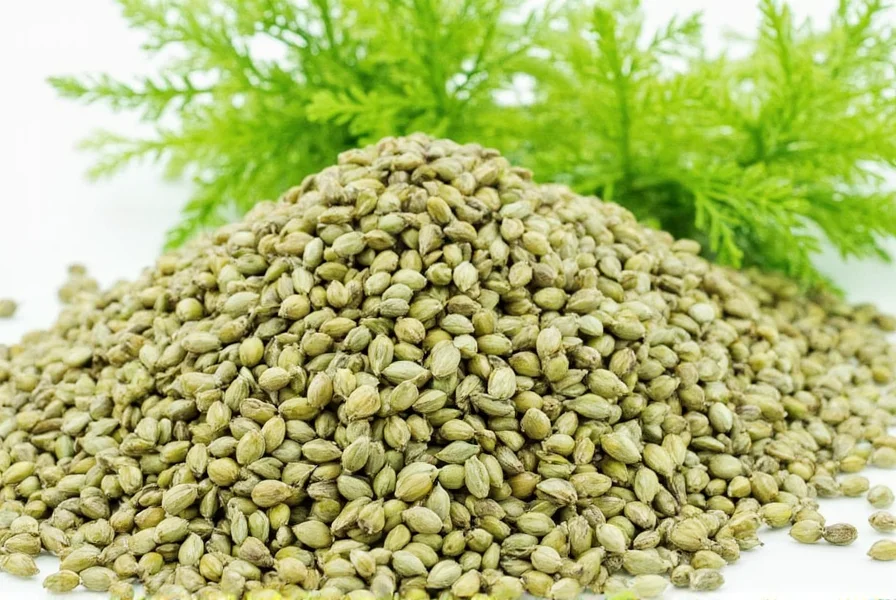Native to the Mediterranean region but now cultivated worldwide, saunf (fennel seeds) offer a unique combination of culinary versatility and potential health benefits. The seeds contain essential oils, particularly anethole, which gives them their distinctive flavor and contributes to many of their therapeutic properties.
Nutritional Profile of Saunf
Fennel seeds pack a powerful nutritional punch despite their small size. A single tablespoon (6 grams) of saunf contains approximately:
| Nutrient | Amount per Tablespoon | % Daily Value |
|---|---|---|
| Calories | 34 | 2% |
| Fiber | 2.3g | 9% |
| Protein | 1.1g | 2% |
| Calcium | 32mg | 3% |
| Iron | 0.6mg | 3% |
| Magnesium | 13mg | 3% |
| Potassium | 96mg | 2% |
Beyond these basic nutrients, saunf contains numerous phytochemicals including flavonoids, phenolic compounds, and volatile oils that contribute to its potential health-promoting properties. The seeds are particularly rich in antioxidants, which help combat oxidative stress in the body.
Science-Backed Health Benefits of Saunf
Research into the health benefits of saunf has revealed several promising applications:
Digestive Health Support
One of saunf's most well-documented benefits is its positive effect on digestion. The seeds contain compounds that can help relax gastrointestinal spasms, making them effective for relieving bloating, gas, and indigestion. A 2016 study published in the Journal of Food Science and Technology found that fennel seed oil significantly reduced symptoms of irritable bowel syndrome.
Natural Breath Freshener
Chewing saunf after meals is a traditional practice in many cultures for good reason. The antimicrobial properties of fennel seeds help combat odor-causing bacteria in the mouth. Unlike artificial breath fresheners, saunf provides long-lasting freshness without chemicals.
Potential Anti-Inflammatory Effects
The antioxidants in saunf, particularly rosmarinic acid and quercetin, demonstrate anti-inflammatory properties. Regular consumption may help reduce inflammation markers in the body, potentially benefiting those with inflammatory conditions.
Hormonal Balance Support
Some research suggests that saunf may help regulate hormones, particularly in women. The phytoestrogens in fennel seeds might help alleviate symptoms of premenstrual syndrome and menopause, though more research is needed in this area.
Culinary Applications of Saunf
Saunf's versatility in the kitchen makes it a valuable ingredient across multiple cuisines:
Indian and Middle Eastern Cuisine
In Indian cooking, saunf is often used as a mouth freshener after meals and incorporated into spice blends like panch phoron. It's essential in dishes like biryani and various lentil preparations. Middle Eastern cuisine uses saunf in breads, stews, and meat dishes to add depth of flavor.
Mediterranean Cooking
Mediterranean chefs use saunf to flavor fish dishes, roasted vegetables, and breads. The seeds pair particularly well with tomatoes, olives, and citrus flavors.
Beverages and Desserts
Saunf adds a sophisticated flavor to teas, syrups, and even ice creams. Try making traditional saunf water by steeping one teaspoon of seeds in hot water for 10 minutes—a refreshing digestive aid.

Practical Tips for Using Saunf
Maximize the flavor and benefits of saunf with these practical tips:
- Storage: Keep saunf in an airtight container away from light and heat. Properly stored, the seeds maintain their flavor for up to 12 months.
- Preparation: Dry roast saunf in a pan over medium heat for 1-2 minutes until fragrant. This enhances the flavor and makes the seeds easier to grind.
- Grinding: Use a dedicated spice grinder for best results, as saunf's oils can leave residue that affects other spices.
- Daily consumption: One to two teaspoons of saunf daily is generally considered safe for most adults.
Potential Side Effects and Precautions
While saunf is generally safe when consumed in culinary amounts, some considerations include:
- Excessive consumption (more than 2-3 tablespoons daily) may cause nausea or allergic reactions in sensitive individuals
- Pregnant women should consult their healthcare provider before consuming saunf medicinally
- Those with estrogen-sensitive conditions should use caution due to saunf's phytoestrogen content
- Saunf may interact with certain medications, particularly those metabolized by the liver

Where to Find Quality Saunf
When purchasing saunf, look for seeds that are greenish-brown in color with a uniform appearance. High-quality saunf should have a strong, sweet aroma when crushed between your fingers. Organic options are preferable to avoid potential pesticide residues. Specialty spice shops, Indian grocery stores, and reputable online retailers typically offer the freshest saunf.
Conclusion
Saunf represents a remarkable intersection of culinary delight and potential health benefits. Whether you're using it to enhance your cooking, support digestive health, or simply enjoy its refreshing properties, this ancient spice continues to prove its value in modern times. By understanding how to select, store, and use saunf properly, you can incorporate this versatile seed into your daily routine with confidence.
What is the difference between saunf and anise seeds?
While saunf (fennel seeds) and anise seeds have similar licorice-like flavors, they come from different plants. Fennel seeds are larger, greener, and have a milder flavor compared to the smaller, grayish-brown anise seeds which have a stronger, more intense flavor. They are not interchangeable in recipes requiring precise flavor profiles.
Can saunf help with weight loss?
Saunf may support weight management efforts as a low-calorie snack that promotes feelings of fullness. Its diuretic properties can help reduce water retention, and it may improve digestion, which indirectly supports metabolic health. However, saunf alone won't cause significant weight loss without accompanying dietary and lifestyle changes.
How much saunf water should I drink daily?
One cup of saunf water daily is generally sufficient for most adults. To prepare, steep one teaspoon of saunf in a cup of hot water for 10-15 minutes, then strain. Drinking it first thing in the morning on an empty stomach may maximize digestive benefits.
Is saunf safe for children?
Saunf is generally safe for children when used in culinary amounts. Many cultures give small amounts of saunf to children for digestive issues. However, medicinal use or concentrated forms should only be given to children under professional guidance, as their developing systems may react differently to herbal compounds.
Can I grow my own saunf at home?
Yes, fennel plants are relatively easy to grow in home gardens. They require full sun, well-drained soil, and regular watering. The plant produces yellow flowers that develop into the saunf seeds. Allow the seed heads to dry on the plant before harvesting for the best flavor and storage quality. Note that fennel can become invasive in some regions, so check local growing regulations first.











 浙公网安备
33010002000092号
浙公网安备
33010002000092号 浙B2-20120091-4
浙B2-20120091-4